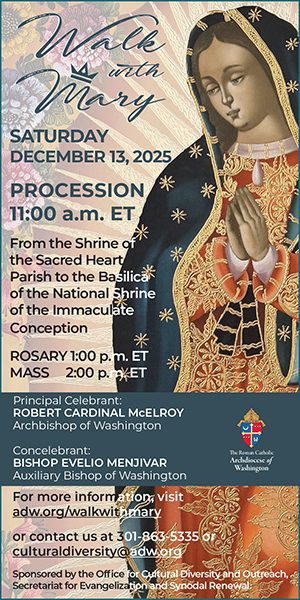Catholic bishops in the Caribbean are calling for dialogue, cooperation and calm amid rising geopolitical tensions that have seen a U.S. military buildup in the region.
Such tensions compound a number of ongoing crises in several Caribbean nations, several of which are now also grappling with extensive damage from Hurricane Melissa.
In an Oct. 25 press release, the bishops of the Antilles Episcopal Conference – which represents 19 dioceses and two independent missions, spanning 13 independent countries, 12 territories between the United Kingdom and the Netherlands, and three overseas departments of France – expressed their “grave concern” regarding “the recent buildup of naval and other military assets in the Southern Caribbean.”
Over the past several weeks, the U.S. government has launched multiple strikes on alleged drug boats in both the Caribbean and the Pacific, claiming the actions are necessary to counter narcoterrorism and cartel activity, particularly from Venezuela – whose leader, President Nicolás Maduro, is at odds with the Trump administration.
So far, a total of at least 75 have been killed in U.S. strikes taking place in both the Caribbean and the Pacific, with six killed in the latter Nov. 9, according to Secretary of War Pete Hegseth.
President Donald Trump has deployed to the Caribbean the aircraft carrier USS Gerald R. Ford – the largest of its kind in the world – along with several guided missile destroyers and cruisers, amphibious vessels, military aircraft, a nuclear-powered attack submarine and supporting assets.
In their statement, the bishops pointed to the “potential implications” such actions pose “for the socio-economic, political, and humanitarian well-being of our region and its people.”
Specifically, they said, “The presence of warships and the disruption of marine livelihoods within our Caribbean waters represent real and immediate threats to regional stability and to the welfare of our nations.”
They also stressed the need to “speak clearly to the moral challenges facing our region.” The bishops said “the narcotics trade continues to devastate Caribbean societies – eroding lives, futures, and the very moral fabric of our communities. This is a grave crisis for the Church and for families everywhere, and one we are duty-bound to confront.”
Yet, they warned, “the arbitrary and unwarranted taking of life cannot be justified as a means of resolution. Such acts violate the sacredness of human life.”
In addition, the bishops said, “the disregard for the sovereignty of independent nations cannot be accepted as a reasonable measure in the name of border security. War or the threat of war is never the right solution.”
Instead, the Caribbean bishops said, “the objectives of securing our borders and the elimination of the narcotics trade must be pursued with the respect for law, the dignity of human life and with a tacit understanding of our region’s deep commitment to peace.”
They appealed to “those entrusted with leadership” for “a de-escalation of militarization and a renewed commitment to dialogue and regional unity.”
They said, “Our history has shown that discourse and negotiation have served us well as independent nations united in community and cooperation.”
The bishops urged the faithful to embrace a “renewed focus on faith and trust in the Lord, resisting the discouragement and cynicism that threaten to overwhelm us.”
Concrete steps to foster that faith include “acts of reconciliation, the faithful observance of the sacraments, and the family rosary,” all of which “remain powerful expressions of hope – expressions that move heaven and can change the hearts of humankind.”
“The world may be at war, but we are called to pray for peace and to act in peace,” said the Antilles Episcopal Conference in its message. “In this Jubilee Year of Hope, as the Church continues the ancient tradition of pardon and restoration, we reaffirm our common goal and shared brotherhood that transcend borders and national interests.”











